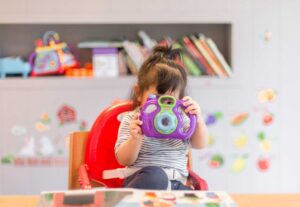It is easy to assume that only the perpetrators of bullying may need to go through anger therapy. The truth that most parents fail to realize is that a child who has fallen victim to bullying might need professional anger management therapy as much or even more than the bully.
Hurt people hurt people. – Will Bowen
 It is common knowledge in therapy circles that most perpetrators of physical or emotionally abusive behavior like bullying have a history of being abused themselves. While it may be difficult to imagine when a child is still an emotional wreck after being abused, it may not be long before that same child turns on another.
It is common knowledge in therapy circles that most perpetrators of physical or emotionally abusive behavior like bullying have a history of being abused themselves. While it may be difficult to imagine when a child is still an emotional wreck after being abused, it may not be long before that same child turns on another.
Without any anger therapy, it is easy for feelings of hurt to be transformed into resentment and anger unless we make a conscious effort to stop the cycle. Witnessing the effects of bullying on their child can be a traumatic experience for parents, which can trigger protective instincts and lead parents to feel anger toward bullies!
Did you know that when a parent exhibits anger toward a child’s bully, this can foster victim identity in kids, which can make them take advantage of those aggressive emotions to hurt others? After all, the kid now knows that they can simply blame what happened to them for taking it out on someone else.
Parents need to admit that they are not able to be objective when it comes to their own children, so anger therapy for everyone might be a better option.
What makes bullied kids start bullying others?
Parents of peer-abused kids have a crucial role to play in helping them rise above the effects of bullying by asking poignant questions that help them understand how their child is coping.
Some reasons anger without therapy can transform into bullying include:
- A lack of the necessary tools and resources to help manage their feelings and emotions properly during or immediately after they are bullied.
- A lingering feeling of embarrassment, bitterness, or resentment due to the failure to address the trauma and make the child understand that it is not their fault.
- A subconscious cycle of abuse arising from the need to connect with kindred spirits may lead them into more abusive relationships with people they feel they now identify with.
How to help a bullied kid start healing through anger therapy
- Firstly, make sure the bullying threat has been fully eliminated and the victim child knows they are now safe from their tormentors. This may entail meeting with the bully’s parents, school authorities, or, in extreme cases, filing police reports.
- Help the child talk through what happened and clear up misconceptions about their role in the traumatic event. As much as possible, it is important to replace the negative words and actions with those of affirmation, kindness, and love.
- Start asking the victim of bullying questions that take the focus off them. Like, “What do you think makes a child bully someone else?” Or “Do you think a bully feels better about themselves for hurting another kid? If they are still feeling raw and hurt, you may provide suggestions to answer the questions in a non-toxic manner.
- Remind the child of the good things other kids and friends have done for them, as well as the good things the kid has done for others. Diverting attention toward positive acts and happy interactions will remind a bullied child that not everyone treats them badly.
- Encourage the child to engage in stress management and relaxation techniques to help them readjust, cope, and heal. It may be necessary to constantly check that the child is not adopting negative coping mechanisms like isolation and instead is engaged in anger therapy sessions.
Most children who experience bullying will experience feelings of shame, self-blame, or revenge. Bullying can have a long-lasting impact on everyone involved, from the person being bullied to other children who witness the bullying to the person who bullies others. It is the responsibility of all authority figures in a child’s life to help end the cycle of abuse.
Getting the bullied child access to professional help and anger therapy can help treat stress related to bullying and other traumatic experiences more permanently.
Feel free to explore the experienced anger management professionals at our location by using the tools provided on this website and take steps to help your child regain their confidence and security.
References:
A Complaint-Free World: How to Stop Complaining and Start Enjoying the Life … – Will Bowen, Google Books
Photo:
“Budding Photographer”, Courtesy of Tanaphong Toochinda, Unsplash.com, CC0 License
-
Grace Mavindidze: Author
Grace Mavindidze is an experienced Journalist of close to two decades and a certified SEO specialist writer who enjoys traveling, meeting people from a broad cultural spectrum, as well as engaging people in topics that are informative, entertaining,...





